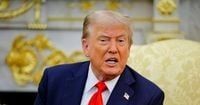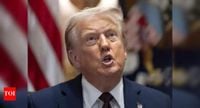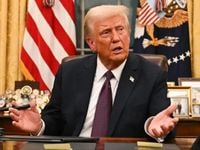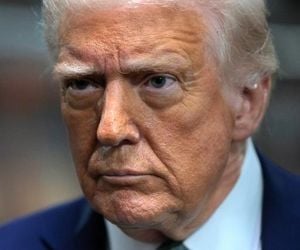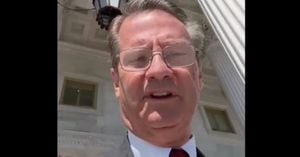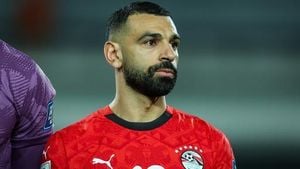On September 4, 2025, U.S. President Donald Trump delivered a blunt message to European leaders: stop buying Russian oil, or risk prolonging the war in Ukraine. The call, which took place during a high-stakes video conference of the so-called "Coalition of the Willing" led by French President Emmanuel Macron, quickly became the latest flashpoint in the ongoing struggle to isolate Moscow and support Kyiv as the war drags into its third year.
According to Reuters and Caliber.Az, Trump joined the Paris-based discussion alongside Ukrainian President Volodymyr Zelenskyy and European Commission President Ursula von der Leyen. The group, which included over 30 European nations, was focused on hammering out security guarantees for Ukraine should a peace agreement with Russia ever materialize. But Trump, never one to mince words, steered the conversation toward Europe's energy ties with Moscow. "Europe must stop purchasing Russian oil that is funding the war — as Russia received 1.1 billion euros in fuel sales from the EU in one year," a White House official relayed to reporters, echoing the president’s pointed remarks.
The president’s demand was not limited to Russia. Trump also urged European leaders to "place economic pressure on China for funding Russia’s war efforts," highlighting the increasingly complex web of alliances and rivalries shaping the conflict. As reported by AFP and The New York Post, Trump's frustration has grown as his efforts to mediate a swift end to the fighting have failed to bear fruit—despite his bold prediction, upon taking office in January, that he could rapidly resolve the crisis.
For Trump, the issue is as much about European resolve as it is about geopolitics. "The 'Coalition of the Willing' meeting was on security guarantees for Ukraine. President Trump questioned their seriousness while they continue to fuel Russia's economy and war. The president made clear that this is not his war, and the Europeans must step up as well," a senior White House official told Reuters. The president’s tone, described as "combative" by several outlets, left little doubt about his impatience with what he sees as European foot-dragging.
The facts on the ground are stark. According to the Institute for Energy Economics and Financial Analysis (IEEFA), France, Belgium, and Spain accounted for roughly 85% of all Russian liquid natural gas imports in 2024. While most European countries halted Russian crude imports in 2022 and banned Russian fuel in 2023, Hungary and Slovakia have continued buying, citing their heavy reliance on Moscow for energy. The European Union granted both countries exemptions to its embargo, a move that has fueled tension within the bloc and drawn criticism from Kyiv.
Ukrainian President Zelenskyy, who participated in the call, did not mince words either. He singled out Hungary and Slovakia for their continued purchases of Russian oil, despite the ongoing war and a raft of international sanctions. According to AFP, Zelenskyy stressed the need for "further sanctions on Russia and ways to protect Ukraine’s airspace from Russian attacks." In a post to X (formerly Twitter), Zelenskyy later said, "We discussed various options. The most important: applying the right pressure. Strong measures, particularly economic ones, to force an end to the war. The key to peace is depriving Russia’s war machine of money and resources."
Trump’s argument hinges on the idea that cutting off Russian energy revenues is essential to ending the war. As The New York Post reported, "Trump emphasized that Europe must stop purchasing Russian oil that is funding the war — as Russia received $1.3 billion in fuel sales from the EU in one year." The European Commission, for its part, has proposed legislation to phase out all EU imports of Russian oil and gas by January 1, 2028. Brussels has also lowered the price cap for Russian crude to $47.6 per barrel, down from the previous $60, as part of a broader effort to squeeze Moscow’s war chest.
Yet, the path forward is anything but clear. Europe remains divided on how to handle Russian influence, with some leaders pushing for tougher measures and others wary of jeopardizing their own economies. As one European source told The New York Post, "The US comments regarding the two EU countries that buy oil from Russia should not be seen as a criticism against Europe. They are rather a sign of support to the efforts made by most Europeans and by the coalition of the willing who have been pushing for months if not years for stopping these oil purchases."
Trump’s tough talk does not stop at Europe’s borders. He has also turned up the pressure on China, accusing President Xi Jinping of "conspiring with Russian President Vladimir Putin and North Korean leader Kim Jong Un" after the trio attended a military parade in Beijing commemorating the end of World War II. According to Russian customs data cited by The New York Post, China has supported Russia’s war by exporting key technologies, including fighter-jet components and navigational systems for military helicopters. China is now Russia’s top purchaser of crude oil, followed closely by India.
Despite these accusations, Trump has so far refrained from imposing secondary sanctions on Beijing, even as he slapped a 50% tariff on India last week for its continued purchases of Russian oil. The president’s reluctance to target China directly has not gone unnoticed, especially as tensions between Washington and Beijing continue to simmer on multiple fronts.
Meanwhile, the European Commission’s proposed phase-out of Russian oil and gas imports by 2028 remains just that—a proposal. Many in Brussels are pushing for faster action, but the reality of Europe’s energy needs, especially in countries like Hungary and Slovakia, complicates the picture. The IEEFA noted in a February report that while Europe decreased its imports of liquefied natural gas from the U.S., Qatar, and Algeria last year, those from Russia actually rose by 18%.
Amid all this, Trump has made it clear that he expects Europe to "absorb more of the burden for their defense" and is increasingly reluctant to commit additional American support to a war he wants to see concluded. As reported by Reuters, Trump has withheld new sanctions on Russia and China but has not ruled out imposing them in the future. French President Emmanuel Macron, for his part, announced that 26 nations have pledged to provide Ukraine with postwar support on land, sea, and in the air—a sign of ongoing, if sometimes uneven, transatlantic cooperation.
As the conflict grinds on, the question remains whether tough rhetoric and incremental sanctions will be enough to change the calculus in Moscow—or whether Europe’s energy dependency and global power politics will keep the war’s end just out of reach.
